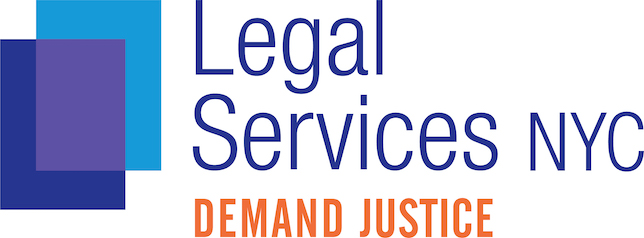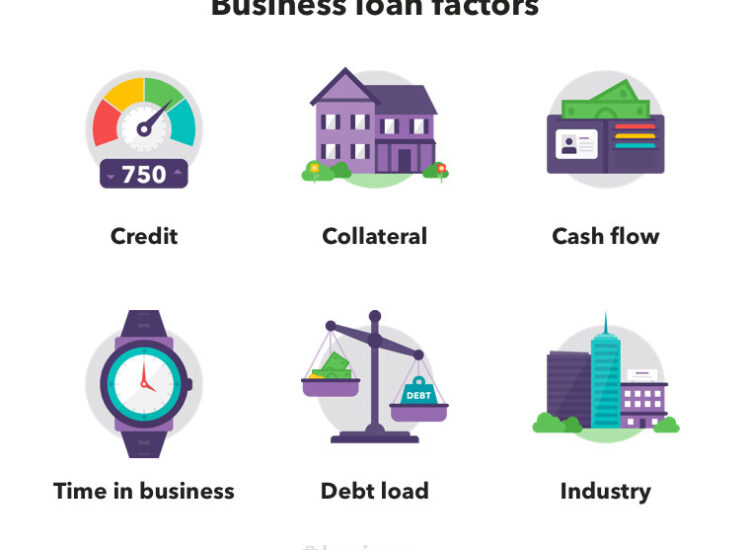The recent surge in popularity of business degree online courses reflects a growing need for accessible and flexible higher education. This evolution offers increased opportunities for career advancement to a broader demographic while also introducing challenges such as heightened competition in the job market and the variability in program quality. This comprehensive guide will assist career changers in selecting and completing an online business degree that aligns with their professional goals.
Toc
- 1. Choosing the Right Online Business Degree
- 2. Understanding the Cost of a Business Degree Online
- 3. Related articles 01:
- 4. Accreditation and Program Quality: Ensuring a Valuable Degree
- 5. Balancing Work and Studies: Flexibility in Online Learning
- 6. Related articles 02:
- 7. Career Services and Job Placement Assistance
- 8. Conclusion
Choosing the Right Online Business Degree

When considering business degree online courses, it’s essential to understand the different types available. Options include Associate’s, Bachelor’s, and Master’s degrees, each with distinct time commitments and career implications.
Associate’s Degree in Business
A 2-year online business management degree is an excellent option for those looking to enter the business field quickly or switch careers. This degree typically takes about two years to complete and prepares graduates for entry-level positions. Career changers can expect to earn between $30,000 and $40,000 annually, with the added benefit of being able to transfer credits toward a Bachelor’s program in the future.
Bachelor’s Degree in Business
A Bachelor’s degree in business generally requires four years of full-time study. This degree opens doors to broader career opportunities in various fields such as marketing, finance, and management, with potential salaries ranging from $50,000 to $70,000. Students can specialize in areas like finance or marketing, enhancing their employability and aligning their education with career goals.
Master’s Degree in Business (MBA)
For those aiming for advanced roles, an MBA is highly regarded. Completing an MBA program typically takes around two years. Graduates often secure leadership positions with salaries exceeding $80,000, making it a worthwhile investment for ambitious professionals. However, it’s important to consider the potential drawbacks of pursuing an MBA, such as the high opportunity cost and the saturation of the MBA job market in certain sectors.
Specialized Business Degrees
In addition to traditional degrees, specialized programs such as those in data analytics or supply chain management are gaining traction due to evolving market demands. These degrees often focus on specific skill sets required in today’s job market, with salaries for data analysts averaging around $70,000, while supply chain managers can earn upwards of $80,000 according to Bureau of Labor Statistics (BLS) data.
Understanding the Cost of a Business Degree Online
When evaluating business degree online courses , understanding the financial implications is crucial. Tuition can vary significantly based on the institution. Options for the cheapest online business degree can range from $6,000 to $26,000 for an Associate’s degree and from $40,000 to $62,756 for a Bachelor’s degree.
Financial Aid Opportunities
Exploring financial aid options is essential for prospective students. Scholarships, grants, and student loans can help reduce the financial burden associated with education. Researching these resources is vital, as many institutions offer tailored scholarships that cater to different needs.
Impact of Federal Student Loan Interest Rates
It’s also important to consider the impact of federal student loan interest rates on overall program costs. As of recent data from the Department of Education, the average interest rate for federal student loans is around 4.99%, which can significantly affect the total amount repaid over time. Understanding these financial commitments can help students make more informed decisions about their education financing.
2. https://thietbivesinhklaus.vn/mmoga-best-cissp-online-training-in-2024-a-comprehensive-guide/
3. https://thietbivesinhklaus.vn/mmoga-online-degrees-in-texas-your-guide-to-flexible-learning/
5. https://thietbivesinhklaus.vn/mmoga-webster-university-online-degrees-a-gateway-for-global-learners/
Finding Affordable Options
Many online programs are more cost-effective than traditional on-campus options. Websites dedicated to higher education can provide insights into tuition rates and financial aid opportunities, helping students find the best online business degree that fits their budget. While fully accredited free online business degree programs are rare, some institutions may offer free courses or partial programs to help reduce overall costs.
Accreditation and Program Quality: Ensuring a Valuable Degree
Selecting an accredited program is essential for ensuring the quality of your education and the value of your degree in the job market. Accredited business degree online courses provide a solid educational foundation and enhance your employability.
Importance of Accreditation
Choosing an accredited program is essential to ensure you receive a quality education that is respected and recognized by employers and other educational institutions. Accreditation serves as a stamp of approval, verifying that the institution meets specific academic and professional standards. The University of Phoenix, for example, is a well-known institution offering accredited programs, giving students the confidence that they are receiving education at a high standard. An accredited program not only enhances your learning experience but can also significantly impact your future career prospects and opportunities for further education.
Types of Accreditation
Understanding the difference between regional and national accreditation is crucial when selecting an educational program. Regional accreditation, which is granted by organizations such as the Higher Learning Commission (HLC) or WASC Senior College and University Commission (WSCUC), is generally more prestigious and widely accepted. It is often a requirement for students looking to transfer credits or apply for graduate and professional programs. Employers also tend to favor candidates from regionally accredited institutions, as it reflects a rigorous academic framework.
On the other hand, national accreditation, offered by bodies like the Accreditation Council for Business Schools and Programs (ACBSP), is typically associated with trade schools, technical programs, and certain career-specific sectors. While nationally accredited programs can still offer valuable education, they may be less widely recognized in the academic world and might not meet the transfer requirements of regionally accredited institutions. Being aware of these distinctions can help you make a more informed decision, ensuring that the program you choose aligns with your career goals and academic aspirations.
Balancing Work and Studies: Flexibility in Online Learning
One of the most significant advantages of business degree online courses is their flexibility. Many students wonder, how long does it take to get a business degree online? The answer varies: Associate’s degrees typically require two years, while Bachelor’s degrees take around four years to complete. Online learning allows students to study at their own pace, making it easier to balance work and education.
Learning Formats
Online programs often provide various learning formats, catering to the diverse needs of students. Two popular options are self-paced learning and accelerated programs, each offering unique benefits and challenges. In a self-paced course, students can complete assignments and watch lectures on their own schedule. This format allows for more flexibility in managing work and school commitments.
On the other hand, accelerated programs offer a faster pace with shorter terms, allowing students to finish their degree in less time. While this may require dedicating more hours to studying each week, it also means completing the program sooner and entering the workforce earlier.
Self-Paced Learning
Self-paced learning is particularly beneficial for busy professionals or individuals juggling multiple responsibilities. This format allows students to set their own study schedules, providing the flexibility to balance work commitments, family obligations, and other personal priorities. Learners can progress through the material at their own speed, spending more time on challenging topics and quickly moving through familiar ones. However, it’s important to note that this flexibility requires strong self-discipline and time management skills. Without a structured schedule, some students may struggle with procrastination or fall behind on coursework. Additionally, the independent nature of self-paced learning can lead to feelings of isolation, as students may have fewer opportunities to interact with peers or instructors.
Accelerated Programs
Accelerated programs offer an alternative for those looking to complete their studies in a shorter timeframe. By condensing coursework into shorter terms, these programs allow students to earn degrees or certifications more quickly than traditional schedules. This format is particularly appealing to career changers who want to transition into a new field, such as business, without spending years in school. Accelerated programs often involve a more intensive workload, requiring students to dedicate significant time and effort to keep up with the fast pace. While demanding, these programs can be highly rewarding for individuals who are motivated and ready to focus on their studies. Additionally, the quicker completion of the program can lead to faster entry into the job market, helping students achieve their career goals sooner.
1. https://thietbivesinhklaus.vn/mmoga-online-degrees-in-texas-your-guide-to-flexible-learning/
2. https://thietbivesinhklaus.vn/mmoga-best-cissp-online-training-in-2024-a-comprehensive-guide/
3. https://thietbivesinhklaus.vn/mmoga-webster-university-online-degrees-a-gateway-for-global-learners/
Career Services and Job Placement Assistance
The importance of career services cannot be overstated for online students. Many programs offer resources such as resume writing assistance, networking opportunities, and interview preparation. Graduates benefit from career placement services that connect them with potential employers.
Support Beyond Graduation
Programs that prioritize career services often see higher job placement rates, emphasizing the value of earning a business degree online. These services can include resume workshops, interview coaching, and access to a network of alumni and industry professionals. Success stories of graduates demonstrate how effective these support systems can be, providing clear examples of how they lead to rewarding career outcomes. Whether it’s landing a dream job or securing a promotion, these services play a crucial role in helping students transition from academia to the workforce with confidence.
Current Trends in Online Education
As you explore the best business degree online courses, it’s important to stay aware of current trends in the evolving landscape of education. One significant trend is the growing popularity of micro-credentials and online bootcamps as alternatives to traditional degrees. These programs often offer targeted skill training in areas such as project management, digital marketing, or data analysis, and they can usually be completed in a matter of months. While micro-credentials and bootcamps can be a faster and sometimes more affordable option, they may not hold the same long-term value or recognition as a full business degree in the job market. Evaluating the pros and cons of these alternatives—such as cost, time commitment, and career prospects—is essential to making a decision that aligns with your goals. Additionally, keeping an eye on industry demands and the skills employers value most can help you choose the best path for your career.
Finding the Best Online Business Degree for You
When searching for the best business degree online courses, it’s crucial to evaluate key factors that will impact your experience and future opportunities. Cost is often a primary consideration, so look for programs that fit your budget while offering good value. Accreditation is another critical factor, as it ensures the program meets recognized academic standards and will be respected by employers. Flexibility is equally important, particularly if you’re balancing studies with work or personal commitments—many online programs offer asynchronous classes, allowing you to learn at your own pace. Finally, consider what career services the program provides. From internships to job placement assistance, these resources can make a significant difference in helping you achieve your professional goals. Researching and comparing programs thoroughly will help you identify reputable institutions that meet your unique needs.
Resources for Program Comparison
To make the process of selecting the right program easier, take advantage of the many online resources available. Websites dedicated to higher education often provide tools to compare tuition rates, explore accreditation status, and read student reviews. Additionally, many of these platforms highlight financial aid options, scholarships, and grants that can make pursuing your degree more affordable. Some resources even allow you to filter programs by features such as part-time availability, specialization options, or career support services. Using these tools can save you time and provide valuable insights into which programs align with your goals.
Encourage yourself to think critically about your career aspirations, financial situation, and preferred learning style. A thoughtful, well-researched decision will not only ensure that the program you choose supports your immediate educational needs but also lays a strong foundation for your long-term professional success. With the right tools and an informed perspective, you can confidently select an online business degree program that aligns with your ambitions and sets you on the path to a rewarding career.
Conclusion
Successfully transitioning careers requires careful planning and the right resources. Choosing the right business degree online courses can significantly increase your chances of achieving your career goals. By understanding the different degree options, financial considerations, accreditation standards, and available support services, you can make an informed decision that sets you up for success.
Start your research today and take the first step toward a rewarding new career path. Explore reputable institutions like the University of Phoenix and compare program costs to find the cheapest online business degree or the best online business degree that fits your needs. Remember to consider factors like accreditation and career services to maximize your return on investment.









